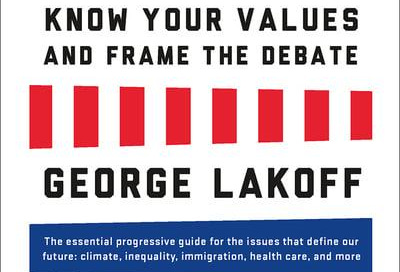I'm Not A Politician
If all you have is a hammer, everything (and everyone) looks like a nail. Politics today operates much the same way, with those on different sides of the aisle looking to pummel one another at will.
I'm not a politician. I'm a local elected official, yes, and that does mean I'm a local…politician. It does not, however, mean that I must behave like a politician.
(Eds. note: I do realize that it would be most apropos to say “I’m not an ideologue.” But humor me this once.)
What do I mean?
Consider that, on a day-to-day basis, in my current role as a city councilman, I'm not charged with representing a party or making sure that any political allegiances are upheld. Rather, in my community of more than 30,000 residents, I represent everyone, regardless of their political party affiliation.
Therefore, when someone calls to ask for my input or involvement as a local elected official, I needn't concern myself with how they voted or with which party they show allegiance to.
But, in the current climate, where eschewing so-called party protocol and showing a willingness to work with those on the other side, or who might not agree with your party, not toeing the party line can have real consequences. That’s never going to work for me in my current role.
I'm not playing that game.
Politics is divisive, corrosive, and often anathema to meeting the needs of the community as a whole. I know this to be true; I see it daily with my own eyes. So do you, if you spend any time watching the news, reading magazines or newspapers, or perusing social media. I didn’t sign up to be a political shill. Rather, I only ran for office because I wanted to be a benefactor to the entirety of the community.
On the night of my kickoff, in March of 2019, one of my supporters said a few words I'll never forget
"Don't be a politician," she said. "I hope you'll be a statesman."
She hoped I'd be a principled, disciplined leader respected by and committed to the needs of the community, not to the whims of a party or to any personal agenda.
I’ll never forget those words; they still live in my head today.
I have no delusions that you can remove the politics from local politics. But I 100% believe you don’t need to be guided by politics to be an effective local elected official. I prove this fact every day.
You don’t have to be political to be successful as a local elected official.
Nothing—and I mean nothing—I do on a daily basis as a local elected official is of strict significance to any one political party or specific political ideology. For example, when I’m talking with city staff, meeting with applicants, returning calls and emails to constituents, friends, and neighbors, my political affiliation is never a part of the discussion. Nor should it be.
I’m here to facilitate, to serve, to remove impediments, and to be a problem solver. Anything that gets in the way of those goals must be shunned. Don’t judge me by my politics; judge me by my results, the impact I have on the community.
I’ll stand behind that record today, tomorrow, and the next day.
How did I arrive here?
The introduction of politics into a discussion of issues primarily germane to a local audience is a classic case of creating a problem where one had not previously existed. This fact occurred to me early in my tenure when people would often interrupt our conversations with, “But you’re [insert politics here],” even when discussing green spaces, lowering taxes, or residential development.
At first, the non-sequiturs made me wonder aloud, “What does that have to do with anything we’re discussing?” Then I realized what was occurring: They were inserting politics to frame the discussion in such a way that whatever came out of my mouth was delegitimized, and to control the narrative.
In the book “Don’t Think of An Elephant,” author George Lakoff shares a story of telling people, including his students at University of California, Berkeley, “Don’t think of an elephant.” As you might imagine, everyone could think of nothing more prominently than an elephant. That’s the goal, he said, illustrating how framing plants seeds in your opponent’s or your audience’s minds.(Eds. Note: While the book was written to help progressive Democrats effectively frame arguments against conservative Republicans, I found the substance of the work valuable for anyone who needs to frame arguments or successfully thwart attempts to have arguments framed against their positions.)
I didn’t fall for it.
I said then and now that “I represent everyone as your local elected official. That means you might not like or agree with me, but my job is to stay the course and focus on the opportunities and priorities of this community. Your insistence on adding politics to the interaction won’t change that fact.”
Now, I engage in some framing of my own: I’m your local elected official, elected to represent everyone, including you. How can we work together?




